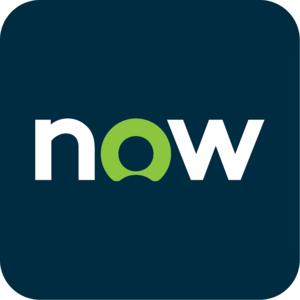Government Accessibility Requirements: What Businesses Must Do in 2025
Updated on February 14, 2026
In 2025, digital accessibility is not just a legal requirement, it’s a business necessity. With stricter enforcement of global regulations like the Americans with Disabilities Act (ADA) and Web. Businesses are now obligated to create inclusive digital experiences for all users, including individuals with disabilities.
Whether you’re running an eCommerce platform, a SaaS product, or a corporate website, ensuring accessibility compliance is critical to avoid lawsuits, improve customer experience, and enhance brand reputation. But what exactly do these accessibility standards entail, and how can businesses effectively meet them in 2025?
Why Is Accessibility Compliance Critical for Businesses in 2025?
Ignoring accessibility is no longer an option. In fact, businesses that fail to comply with these regulations are not only risking lawsuits but also missing out on a massive customer base. Here’s why accessibility should be a priority for every business:
1. Legal Protection Against Lawsuits
In recent years, ADA-related lawsuits against businesses have skyrocketed, especially in industries like eCommerce, finance, and SaaS. In 2025, with stricter enforcement of WCAG 2.2 and ADA compliance, non-compliance can lead to legal penalties ranging from $75,000 to $150,000 per violation.
2. Expanding Your Customer Reach
Over 1 billion people worldwide live with disabilities, including visual impairments, hearing loss, and motor disabilities. An accessible website or digital platform allows your business to reach this untapped audience, improving customer engagement and conversion rates.
3. Boosting SEO & Search Rankings
Search engines like Google prioritize accessible websites in search results. By improving your site’s navigation, alt text descriptions, and page structure, you can significantly enhance your SEO performance and organic traffic.
4. Enhancing User Experience for All
Accessibility features like clear navigation, readable fonts, and voice search compatibility don’t just benefit users with disabilities. They also improve the overall user experience for everyone, leading to higher customer satisfaction and lower bounce rates.
5. Building a Positive Brand Reputation
In 2025, consumers are increasingly drawn to socially responsible brands that promote inclusivity and diversity. By making your platform accessible, you’re not just meeting legal standards, you’re showing your commitment to diversity, equity, and inclusion (DEI).
What Are Government Accessibility Requirements in 2025?
Government accessibility requirements are designed to eliminate barriers for individuals with disabilities and provide equal access to digital platforms, websites, and apps. These regulations focus on improving user navigation, content readability, and compatibility with assistive technologies like screen readers and voice control devices.
1. Americans with Disabilities Act (ADA)
A U.S.-based law that mandates digital platforms, public websites, and eCommerce stores to be fully accessible to people with disabilities. Non-compliance can result in heavy lawsuits and penalties.
2. Web Content Accessibility Guidelines (WCAG 2.2)
An internationally recognized standard that outlines accessibility best practices for websites and apps. WCAG 2.2 introduces new guidelines for better keyboard navigation, improved screen reader compatibility, and accessible design elements.
3. Section 508 (for Government Contractors)
Applicable to federal agencies and their partners, this U.S. regulation ensures all digital content and IT systems are accessible to individuals with disabilities.
4. European Accessibility Act (EAA)
Covers digital products and services across the European Union, including eCommerce platforms, banking apps, and online customer support systems.
Accessibility Requirements for Businesses in 2025
To meet global accessibility standards and avoid legal penalties, businesses must ensure inclusive experiences for both digital platforms and physical spaces. Here’s a breakdown of the core accessibility requirements for 2025:
1. Website Accessibility
In 2025, WCAG 2.2 (Web Content Accessibility Guidelines) is the gold standard for web accessibility. Businesses must ensure their websites are easy to navigate and usable for people with visual, auditory, and motor disabilities.
Key requirements:
- Clear navigation and readable text
- Alt text for images and multimedia content
- Keyboard-only navigation
- Compatibility with screen readers and assistive technologies
- Sufficient color contrast and resizable text
2. Mobile App Accessibility
With the growing use of mobile apps, ensuring accessibility for users with disabilities is essential.
Key requirements:
- Voice control support (e.g., Siri, Google Assistant)
- Adjustable font sizes and high-contrast modes
- Accessible touch targets and gesture alternatives
- Compatibility with screen readers and other assistive tools
3. Digital Document Accessibility
Businesses must make all digital content, including PDFs, eBooks, and reports, accessible for people with disabilities.
Key requirements:
- Proper use of headings and structured layouts
- Descriptive alt text for visuals
- Closed captions and transcripts for video/audio content
- Text alternatives for charts and graphs
4. Physical Store & Workplace Accessibility
For brick-and-mortar businesses, ADA compliance and universal design principles are critical for creating inclusive environments.
Key requirements:
- Wheelchair ramps and accessible parking
- Elevators and wide doorways
- Assistive devices (e.g., hearing loops)
- Accessible restrooms and signage in braille
Benefits of Accessibility Compliance for Businesses
By meeting ADA, WCAG 2.2, and Section 508 standards, businesses can:
- Avoid costly lawsuits and legal penalties
- Improve website traffic and conversion rates
- Enhance customer satisfaction and retention
- Build a more inclusive brand that reflects social responsibility
Conclusion
In 2025, accessibility compliance is no longer optional, it’s a legal necessity and a business advantage. By ensuring your website, app, and digital content are fully accessible, you can protect your business from legal risks and expand your customer reach. Trusted partners like Cloud Consulting Inc is crucial for seamless compliance and expert support.





